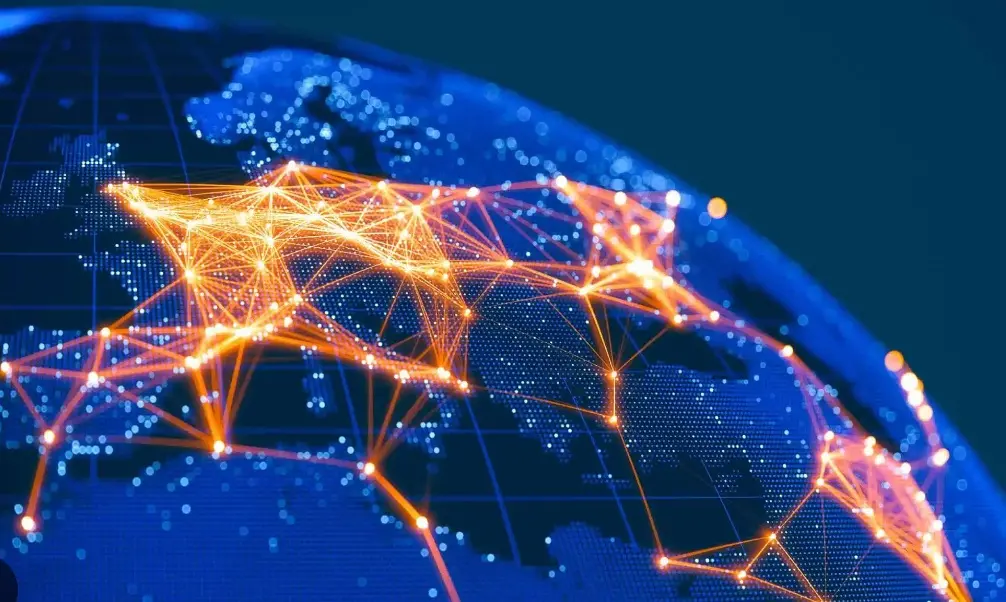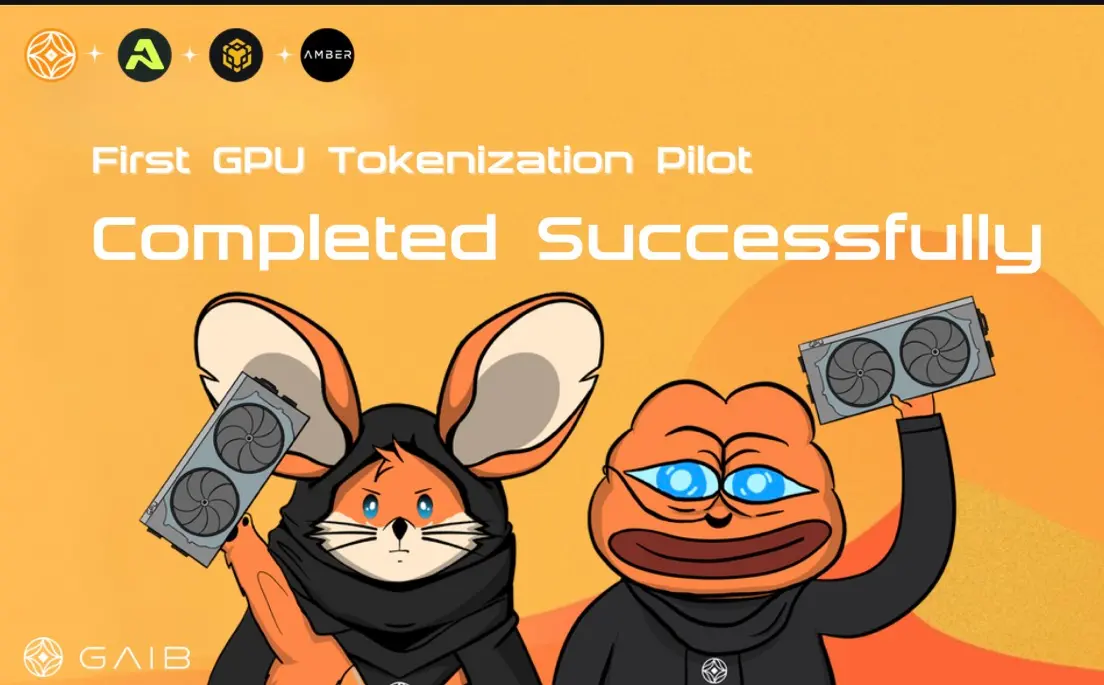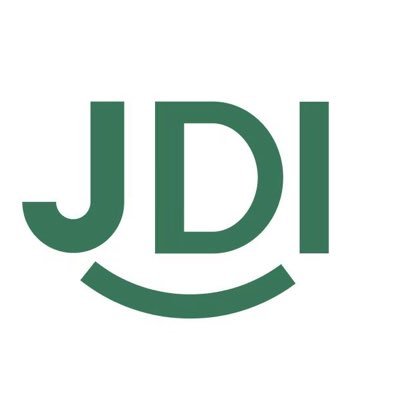DePIN Global Hardware Conference Panorama Review: From Preparation to Successful Conclusion, a Perfect Presentation of a Technological Feast
Author: JDI
On April 8th, as the applause for the final speech gradually faded, the 2024 DePIN Global Hardware Conference successfully concluded on the magnificent stage of Cyberport in Hong Kong. This technology event, hosted by Techub News and organized by JDI Global, brought together the collaborative efforts of CGV and Web3 Labs, along with strong support from renowned institutions such as Cyberport, U WEB, CRYPTOMERIA CAPITAL, UtilityNet, Port3 Network, Azen, Deeper, X3 Link, U2U Network, CYSIC, Network 3, DeepBrain Chain, DeepLink, Titan Network, BOINC AI, De AI, PowerPod, CESS, and others, successfully attracting global attention and focus. Through in-depth exchanges and exciting presentations, the conference not only painted a grand blueprint full of hope for the global hardware industry but also conveyed the power and potential of hardware innovation to the world. At this moment, we stand at a new starting point, confidently looking forward to a brighter future for the global hardware industry.

At the beginning of the conference, Hong Kong Legislative Council member Wu Jiezhuang delivered a speech. He emphasized Hong Kong's unique advantages in developing the Deep Physical Infrastructure Network (DePIN). As a massive economy and a "one country, two systems" city with an effective common law system, Hong Kong not only has great market potential but also enjoys unique advantages in financial innovation and geographical location. Using last year's football match in Beijing as an example, Mr. Wu vividly demonstrated the convenience brought by the combination of blockchain technology and physical infrastructure, highlighting the important role of DePIN in breaking through physical space limitations and promoting technological development.

Next, Zhao Hanchang, project advisor of the Special Duties Team of the Financial Investigation Division of Hong Kong Customs, explained the customs OTC policy. He stated that customs will continue to introduce OTC business within the regulatory framework and welcomes valuable opinions and suggestions from all parties. The introduction of this policy aims to provide a more flexible and convenient regulatory environment for the development of new technologies such as DePIN.

Amanda, Vice President of Web3 Labs, emphasized in her speech the mission of Web3 Labs, which is to assist global Web3 enterprises in establishing themselves in Hong Kong and to accelerate industry development through its service system. She believes that Hong Kong, as a financial center with an open legal environment and multiple advantages, is an ideal place for the Web3 industry. At the same time, Amanda pointed out the challenges faced by Web3 enterprises and stated that Web3 Labs will actively respond to the policies of the Hong Kong SAR government to provide landing services and technical cooperation support for global Web3 enterprises.

During the ceremony for the launch of the DePIN acceleration plan in collaboration with JDI Global and Web3 Labs, Mr. Wang Yiming, Chairman of JDI, Mr. Huang Junlang, representative of Web3 Labs, and Mr. Kevin from CGV took the stage together. Mr. Wang emphasized three important directions for the future: home space, mobile space, and applications around the human body. He believes that many DePIN projects should be built around these specific spaces to create more attractive stories and attract more people to join the DePIN ecosystem. Mr. Kevin and Mr. Huang Junlang also expressed their agreement and looked forward to this collaboration promoting the development of the Web3 field. This brief exchange showcased the common expectations and confidence of all parties regarding the DePIN acceleration plan.

Subsequently, UWeb's principal Yu Jianing released the DePIN report. In the report, he emphasized the significant transformative role of DePIN in future infrastructure construction and corrected the misconception that DePIN is merely hardware mining. He believes that DePIN, as an important means of mental productivity and infrastructure construction, combines blockchain technology with industry to realize the vision of empowering the real economy and promoting industrial development. Principal Yu also shared his love and expectations for DePIN and emphasized its importance in future technological development and the rise of digital wealth.

Abhay, CEO of the Helium Foundation, outlined the history of Helium and its role in the DePIN ecosystem. He pointed out that DePIN is a physical infrastructure network that uses token incentives to create markets. For wireless network providers, DePIN involves coverage creation, guided by token incentives. For demand-side users, tokens provide practical tools for using the network. Abhay used the example of urban internet access to illustrate how DePIN solves traditional network licensing issues, providing convenience for mobile devices. In summary, his speech emphasized the key role of Helium and DePIN in building wireless network infrastructure and the importance of token incentives.

Jan, Chief Technology Officer and Cryptographer of the Dfinity Foundation, emphasized the importance of decentralization in his speech, stating that it is key to building secure, fault-tolerant systems. He mentioned that decentralized systems like the Bitcoin network have existed for many years without being hacked, which is the best proof of the security of decentralization.
Jan pointed out that the goal of decentralization is to build a secure, fault-tolerant system. He demonstrated the security of decentralized systems by comparing the fact that the Bitcoin network has never been hacked over the years. He stated that ICP is a distributed network built from the bottom up, owned and governed by the community, and supports artificial intelligence. Unlike traditional blockchains, ICP has the conditions to allow users to access the blockchain without tokens, using only their mobile phones to meet real user needs.

Alex, co-founder of Dimo, introduced the Dimo project in his speech: an open interconnected car network aimed at helping people make full use of their vehicles and take control of their data. He emphasized the importance of cars in the Internet of Things and blockchain fields, as cars are the most expensive IoT devices most people own, and the automotive industry is much larger than the total of other devices. He also mentioned that the automotive industry currently faces data silos, and Dimo is committed to breaking down these barriers. Additionally, Alex noted that transactions related to cars involve significant costs, such as insurance, maintenance, and other factors, and that data can improve the efficiency of these transactions. Dimo has begun establishing vehicle identity standards and plans to record and maintain this data throughout the vehicle's lifecycle, thereby enhancing transparency and efficiency.

Kuleen, head of DePIN Solana, emphasized the importance of distributed infrastructure in modern society, such as the internet, power grids, and data storage, all of which operate on distributed networks. However, the construction of these networks is both expensive and complex, and they often become highly centralized, leading to unfair phenomena.
He believes that DePIN is key to solving these problems. The uniqueness of DePIN lies in its ability to effectively address many challenges faced by distributed infrastructure. Through DePIN, we can build a more equitable, transparent, and decentralized world.
Finally, Kuleen called on DePIN developers present to build their projects on Solana, as Solana provides an ideal environment to support the development of DePIN. His speech not only deepened understanding of Solana and DePIN but also inspired enthusiasm for building a fairer and more decentralized society.

Aaron, founder of Monnchain, introduced Monnchain as a holding company focused on cryptocurrency, dedicated to ambitious projects since its establishment in 2018. He emphasized that Monnchain's core focus is on gaming, NFTs, and the open metaverse. Through community and DAO participation, Monnchain actively supports portfolio companies in making high-confidence investments. Aaron stated that Monnchain is not just a chain but a complete ecosystem. He predicted that by 2024, we will witness the rise of DePIN. He listed some key advantages of Monnchain, including successfully deploying over 45,000 global IoT gateways and having a vast IoT network. Additionally, Monnchain's robust blockchain allows IoT devices such as smartwatches and glasses to connect, adding more possibilities to its ecosystem.

Tsang introduced Utility Net as a brand new Layer 1 blockchain, based on a decentralized digital chip network, where each physical chip has a unique corresponding RWA mapping wallet on the chain. Through this innovative hybrid encryption protocol, it can achieve incentives without wasting computing power, while the redundant computing power can be rented at a low price to users who truly need it, which is expected to drive significant private capital participation in the construction of practical AI computing infrastructure, aligning perfectly with the window for developing new productive forces in the AI+ and Hong Kong region.

In the speech by Boinc developer Qingniao, he emphasized the importance of artificial intelligence in today's work and learning, pointing out that distributed computing networks are key to the future. He believes that the existing AI computing power faces monopoly issues and that an open, decentralized platform is needed to address this. He introduced how DPN (Distributed Computing Network) provides real-world data and redefines the relationship between computing power and people. He mentioned that computing power is the engine of artificial intelligence, algorithms are the transmission, and data is the source. To promote the commercialization of artificial intelligence, sufficient and open transparent computing power is needed. Finally, he introduced how Boinc AI achieves decentralization of computing power, algorithms, and data through its original PUVC computing power value consensus algorithm to promote the development of artificial intelligence.

Allen Ding, founder of Ebunker.io, shared his rich experience in the Ethereum and DeFi fields during his speech and introduced the achievements of the company eBonker in blockchain infrastructure. He emphasized the importance of decentralization of Ethereum network validation nodes and launched a new product, Ebunker, aimed at helping users achieve higher returns. Additionally, Ding introduced the debunker platform to provide liquidity for low hiring, addressing limitations and issues in the low hiring process, allowing more people to participate in the crypto field. He believes that low hiring is key to the popularization of blockchain technology, thus focusing on this direction. During the speech, he also conducted on-site research and found that many people are not well-informed about low hiring, so the launch of debunker will provide them with better participation opportunities. Finally, Ding thanked everyone for their attention and stated that he would continue to work hard to promote the development of blockchain technology.

In today's roundtable forum titled "The Investment Logic of DePIN," we invited guests from different backgrounds and fields, including investment institutions and project parties, to discuss the investment logic in the DePIN field. The guests introduced their institutions and projects and shared their investment experiences and views in the DePIN field. Among them, Tony, a partner at NGC Ventures, introduced the DePIN projects they have invested in and emphasized the importance of global funds in the DePIN field. Meanwhile, Eraser, founding partner of SevenX Ventures, shared their investment experiences and views in the DePIN field, stating that they are actively looking for promising DePIN projects. Additionally, Unai, CMO of Starpower, introduced how they help DePIN projects with marketing and brand building. Rock, founder of Network3, stated, "DePIN projects are not achieved overnight; they require time accumulation. First, implement a points system, run the test network for a period, iterate on the project, and only when the project is truly stable, should it go live on the main network." Forest mentioned that they not only focus on investments in the DePIN field but also provide comprehensive reporting and analysis for the industry through media platforms. The entire forum was lively, with guests actively interacting, bringing the audience an exciting roundtable discussion.

Felix, a speaker from DBC, emphasized the uniqueness and foresight of the Deep Brainchain project in his speech. He reflected on the loneliness at the project's inception and the initial attempts to combine AI with blockchain, marveling at the flourishing development of DePIN and AI Blockchain fields over the years. He introduced the core of the DBC project—decentralized cloud computing power—and showcased its rapid development in network computing power and technology. At the same time, he pointed out the differences from peer projects and emphasized DBC's advantages in being open-source, globally covered, and cost-effective. He is optimistic about the future growth of AI computing power and stated that the DBC project provides opportunities for retail investors to participate in the development of the AI ecosystem. Finally, he looked forward to the application prospects in AI training and inference, cloud gaming, cloud internet cafes, and mining, emphasizing the importance of decentralized computing power in the growing demand for AI hardware.

Ting Du from Powerpod emphasized the importance of energy in artificial intelligence and the global energy revolution in his speech. He illustrated the significance of energy in daily life through personal experiences, particularly the power shortages he faced during the pandemic, which made him deeply aware of energy's importance. He believes that while everyone is currently talking about artificial intelligence, its development relies on energy support, and in the future, energy will become as important as AI in the DePIN era, serving as a fundamental element and universal currency. He also pointed out the issue of electric vehicle charging, noting that the lack of charging facilities limits the popularity of electric vehicles, which is one of the problems the global energy revolution needs to address. Therefore, he called on everyone to pay attention to energy issues and jointly promote the development of the global energy revolution.

Alex Mukhin, co-founder of Cryptomeria Capital, delivered a heartfelt speech. He first introduced his background, noting that as a co-founder of several companies, his business spans investment funds, media, and entertainment projects. Their investment fund, Cryptomeria Capital, is a global investment fund supported by Europe's largest traditional asset management company, Accent Partners. Additionally, they operate a global technology media outlet, Ampost, and a blockchain-based entertainment project, Satoshi Universe.
Alex emphasized that their company has made significant contributions to the industry, providing a wealth of institutional-level reports covering various aspects. He then turned to a special report they are about to release—State of the Pin. This report spans 180 pages and contains in-depth analysis, insightful comparisons, and a wealth of information, making it an important report in the field.

Felix Xia from Azen Network presented a vision of a decentralized, flexible, and user-friendly platform in his speech. This platform aims to support the invocation of resources such as CDN, GPU, and CPU, providing developers with convenient and efficient tools. By sharing his research background and team achievements, he demonstrated their expertise in distributed computing and low-frequency project development. Notably, he mentioned the innovative idea of simplifying complex problems into simple app development and resource scheduling through NFTs and smart contracts, which left a deep impression.
Additionally, Felix emphasized the idea of creating wealth for the rich while also providing opportunities for the poor, proposing the concept of meaningful "mining" using idle phones. This idea not only has social significance but also showcases the inclusive value of technology. At the same time, his exploration of customer acquisition through social media and building project ecosystems provided us with new perspectives and thoughts.

Max, CEO of Port3 Network, showcased the deep strength of Port3 Network in the AI service field during his speech. He emphasized that the team has rapidly built many components over the past two years, including infrastructure, middleware, and applications. He also thanked the support of partners and revealed that the company is closely collaborating with Solana and Okis to build its own chain. In his speech, Max mentioned the number of users and partners, highlighting the company's achievements and influence.

Cherry, Strategic Manager of DeepLink, provided an accessible introduction to the technical features and market prospects of DeepLink as a decentralized AI cloud gaming platform. She emphasized the rapid growth of the cloud gaming market and how DeepLink, through the combination of AI and blockchain technology, addresses two major technical challenges in the cloud gaming industry: low-latency, high-resolution gaming experiences and hardware investment costs. She also introduced how DeepLink incentivizes miners to provide stable services, reduce operational costs, and allows users to participate in project growth dividends through blockchain technology. Finally, she showcased DeepLink's applications in remote control tools, cloud gaming platforms, cloud internet cafes, and cloud XR, emphasizing that "the cloud gaming market is expected to exceed $6.5 billion in valuation by 2024, which is a rapidly growing industry. The DePIN project DeepLink based on cloud gaming can provide a solution for commercial gaming or refining project parties to improve player retention and increase player numbers."

The theme of the roundtable forum was "What is Different About This Round of DePIN?" and invited several guests from different fields, including investment institutions, startups, and technical experts. The forum was hosted by 0xZane, Investment Director of CGV.
The focus of the forum was to explore the current hot topics of DePIN projects and their differences from early projects. Guests generally believed that although the concept of DePIN is similar to early projects, the current market environment and technological developments have created new opportunities. They emphasized the important role of blockchain technology in the digital world, especially its combination with AI and hardware, providing new growth points for DePIN.
Guests also pointed out that the key to the success of current DePIN projects lies in whether they can become new traffic entry points and achieve widespread application. At the same time, they discussed the potential application scenarios of DePIN in Web3, AI, hardware, and other fields, as well as the challenges faced, such as technical compatibility and market acceptance.

This roundtable meeting gathered experts from the fields of payments, renewable energy, the internet, and mobile transportation to jointly explore the challenges and opportunities of DePIN technology. Host Alma guided the guests in a deep discussion about the application prospects and obstacles of DePIN technology in various fields.
Adam Farhat emphasized the impact of regulatory restrictions on the widespread application of DePIN technology, suggesting the need to strengthen communication and cooperation with regulatory agencies to promote industry compliance. Fredrik Ahlgren saw the potential of DePIN in the renewable energy sector, believing that technological innovation and user education are key to promoting its application.
Chloe Phung, from the perspective of internet technology, believed that DePIN technology could bring better user experiences and business innovations to the internet field, but it needs to adapt to rapidly changing market demands and technological trends. Dayon Elings looked forward to the application prospects of DePIN in the mobile transportation field, pointing out the need to overcome technical difficulties and market acceptance challenges.
Overall, the 2024 DePIN Global Hardware Conference is a convergence point of technology and innovation. It not only gathered elites and leaders from the global hardware industry but also showcased the tremendous potential of new technologies like DePIN in promoting industry development and changing lifestyles. As these new technologies continue to develop and be applied, we have reason to believe that future technology will be more convenient, intelligent, and beautiful. We look forward to gathering again at the next DePIN Global Hardware Conference to explore the forefront of technology and unlock infinite possibilities for the future!













